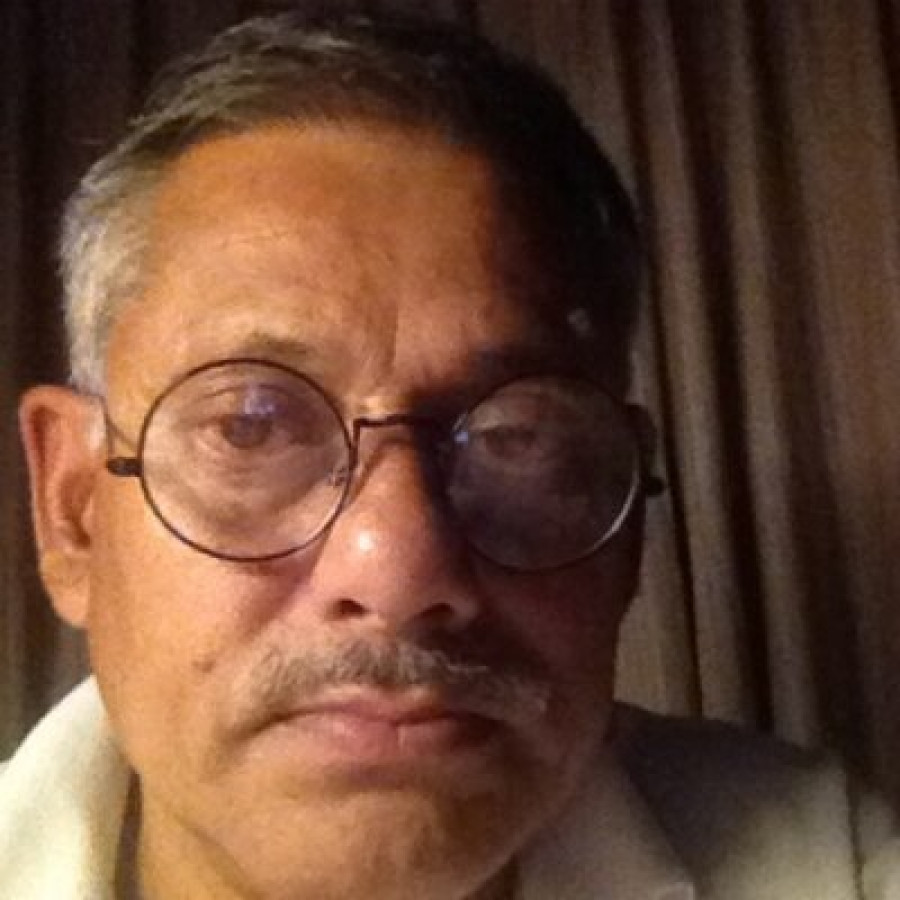Politics
President’s advisor resigns over Sapkota’s nomination as House Speaker
Sushil Pyakurel, one of the petitioners in the murder case against Sapkota, resigned after being asked to withdraw the case by ruling party members.
Anil Giri
Sushil Pyakurel, an advisor to President Bidya Devi Bhandari, has resigned after a section of the ruling party asked him to withdraw a murder case against proposed Speaker Agni Prasad Sapkota from the Supreme Court.
Two of Pyakurel’s aides told the Post that once Sapkota was selected as the Nepal Communist Party’s candidate for Speaker of the House, a section of the ruling party has directly and indirectly urged him to withdraw the case against Sapkota that has been pending at the Supreme Court since May 2011.
Pyakurel is one of the human rights activists who had moved the Supreme Court in 2011 demanding an investigation into Sapkota's involvement in the insurgency-era killing of Kavre’s Arjun Lama. The Supreme Court case had come on the heels of Sapkota’s appointment as communication and information technology minister in the Jhala Nath Khanal administration.
“As far as my understanding goes, Pyakurel was told to assist the government by withdrawing the case against Sapokta by some ruling party leaders,” one of Pyakurel’s aides told the Post on condition of anonymity. “He refused.”
Pyakurel told the Post that there was no direct pressure as such on him to withdraw the case but he did admit that some leaders from the ruling party had indirectly insisted that he withdraw the case as it would not look good for a murder-accused to become Speaker of the House of Representatives.
साढे चार दशकदेखि सामाजिक न्याय र लोकतन्त्रका लागि समर्पित म आफ्नो मूल कर्तव्य प्रति निष्ठावान रहँदै आएको छु। सुदृढ लोकतान्त्रका लागि कानूनका सामु सबैको समान हैसियत कायम गराउने आम नेपालीको आकांक्षाको पक्षमा योगदान गर्न मैले राष्ट्रपतिको सल्लाहकार पदबाट राजीनामा दिएको छु। pic.twitter.com/Gzohkisl2q
— Sushil Pyakurel (@SushilPyakurel1) January 24, 2020
“I have some fundamental differences with the proposed Speaker and in order to abide by my own principles, I tendered my resignation to President Bhandari on Thursday and it was approved on Friday,” Pyakurel told the Post.
Pyakurel said that he would never withdraw the case on someone else’s asking based on principles alone but as the case is currently at the Supreme Court, withdrawing would be next to impossible.
“I have always stood for principles and morals so there was no issue of compromising on my integrity,” said Pyakurel.
In 2011, the murder case against Sapkota was forwarded to the Constitutional Bench of the Supreme Court. A hearing on the case is scheduled for February 5.
A separate petition was registered at the Supreme Court on Friday demanding Sapkota’s arrest, an investigation into the case and the dismissal of his nomination as Speaker.
Pyakurel said that he had once faced a similar dilemma when a request for Balkrishna Dhungel’s pardon landed at the President’s Office.
The Supreme Court had convicted Dhungel of masterminding the murder of Ujjan Kumar Shrestha of Okhaldhunga in 1998 during the Maoist insurgency.
“A pardon was recommended by the government on the basis of his good conduct during his time in jail,” said Pyakurel. “The President gave the pardon by following all the rules so I did not face as big of a moral dilemma at that time.”
In his resignation letter to President Bhandari, Pyakurel highlighted his contributions to human rights and social justice and said that he was resigning over his principles. He did not mention Sapkota by name.
Pyakurel, a long-time human rights activist, has been an advisor to Bhandari on political, social and human rights affairs ever since she became President.
Rights activists however are concerned about Pyakurel’s resignation and see it as a sign of things to come.
“This fiasco likely to go longer than expected because it involves a lot of characters and issues,” said Tara Nath Dahal, chairperson of Freedom Forum, a rights organisation. “This episode will invite a wave in the civil society movement and in media and political circles.”




 18.12°C Kathmandu
18.12°C Kathmandu















